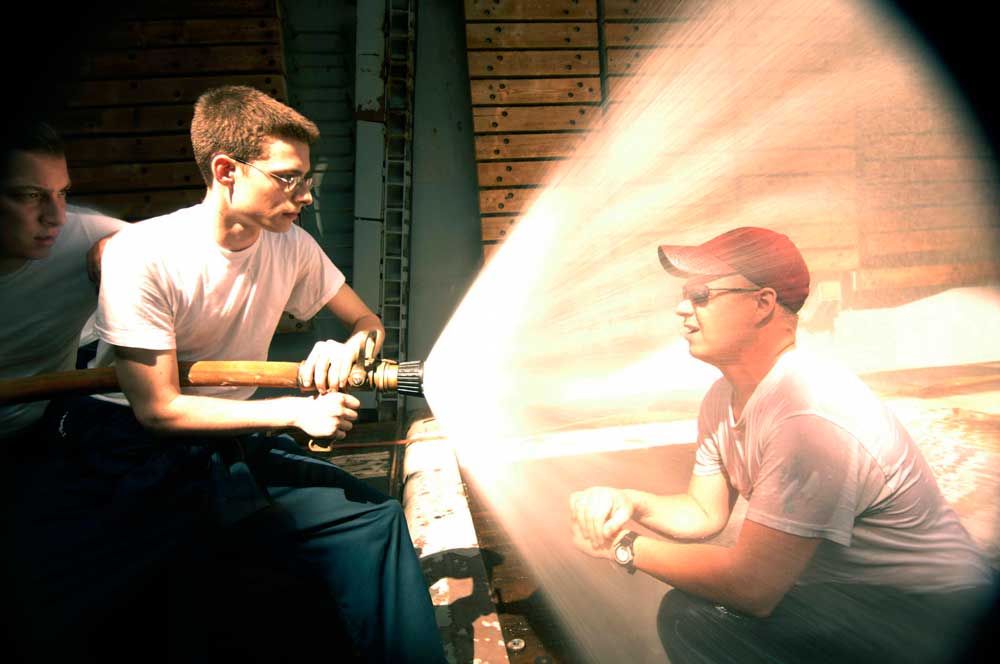As most of us already know, Metro Vancouver is in the midst of a stage two water restriction. Our drinking water reservoirs are moving below their normal levels, fire ratings are extremely high, rainfall has been very low, river levels are low, and snowpack levels are also low. All of these factors add up to the fact that we need to conserve water and be aware of how much water we use daily. Even still, water consumption has skyrocketed at pace with the hot weather.
On average, each Vancouver household uses about 340 litres of water every single day. However this number doubles during the summer months as using water outdoors increases because of lawn watering, power washing, filling pools, and other uses. We have come up with a list of little things you can easily do every day to be aware of your water consumption and use water more wisely.
Don’t run that tap, keep water in the fridge.
Running the water from kitchen or bathroom taps while waiting for the water to become cold is a huge waste of water. Instead, try filling a jug with water and keep it in the fridge so that you always have cold water that you don’t have to wait for.
Washing your car? Only use the water you need.
Using a garden hose to wash your car is very convenient but letting the water flow from the hose for hours is also very wasteful. Put a nozzle on the end of your hose that allows you to control when water is used and stops the flow of water when not in use. These can be purchased from any hardware store for under $10.
Go low flow for toilets and washing machines
Toilet flushing accounts for 30% of all the water used by a household. Washing machines make up 28% of water usage. This means that these two appliances alone are responsible for over half of a Vancouver household’s overall water waste. Older toilet models use a whopping 12 litres of water per flush (Lpf) while low flow options use about half this amount.
Not only will switching to low flow appliances help you to drastically lower your water consumption, but it will also save you money on your next hydro bill.
One handy trick for high Lpf toilets is to place an object in the tank (not the bowl!) that will decrease the amount of water needed to fill it. You can use containers full of water, bricks, or anything else that won’t float or interfere with the interior mechanism. Less water in the tank means less water per flush!
Make your garden water savvy
With the water restriction in effect, watering lawns is restricted to one specific day per week during a certain time frame. This means that leaving sprinklers on throughout the day is out of the question, and a little browning of lawns is inevitable.
You can counteract this happening in the future by choosing plants and grass that do not need to be watered as often. Doing this is a great way to both conserve water and have a garden that can survive the dry summer months. Another option is to recycle water that was used to wash dishes, for example, and instead of putting it down the drain, use it to water your garden.
For more information about lawn sprinkling regulations, see the Metro Vancouver website.
Brushing your teeth doesn’t have to be wasteful
Keeping the water running while brushing your teeth results in full minutes worth of perfectly good water going down the drain. Simply turning off the tap while you are not using it is a great way to lower your water usage footprint.
Fix those leaks!
Leaky faucets, garden hose connections that leak, and leaking toilets are often overlooked but can account for a huge waste of water. The solution can be as simple as replacing the washer in your garden hose connection but can help you save about 280 litres of water per week for a slow leak and 3,700 litres of water per week for a steady stream (that’s almost 50 baths worth!).
Sweep, don’t spray
Instead of using water to clean walkways or driveways, sweep away debris. Using a broom instead of a hose cuts out any water waste and can get the job done just as well. Power washing also uses a huge amount of water and in some instances can be replaced by a bucket of water and some elbow grease.
Showers over baths
In general, each time you fill up a bathtub, a massive 70 gallons of water is used. Because of this, showers are usually a more water-friendly option and something to consider next time you reach for the bathtub faucet.
Numerical data used within this article was taken from the Metro Vancouver website. To see this and other information, visit the website at www.metrovancouver.org






